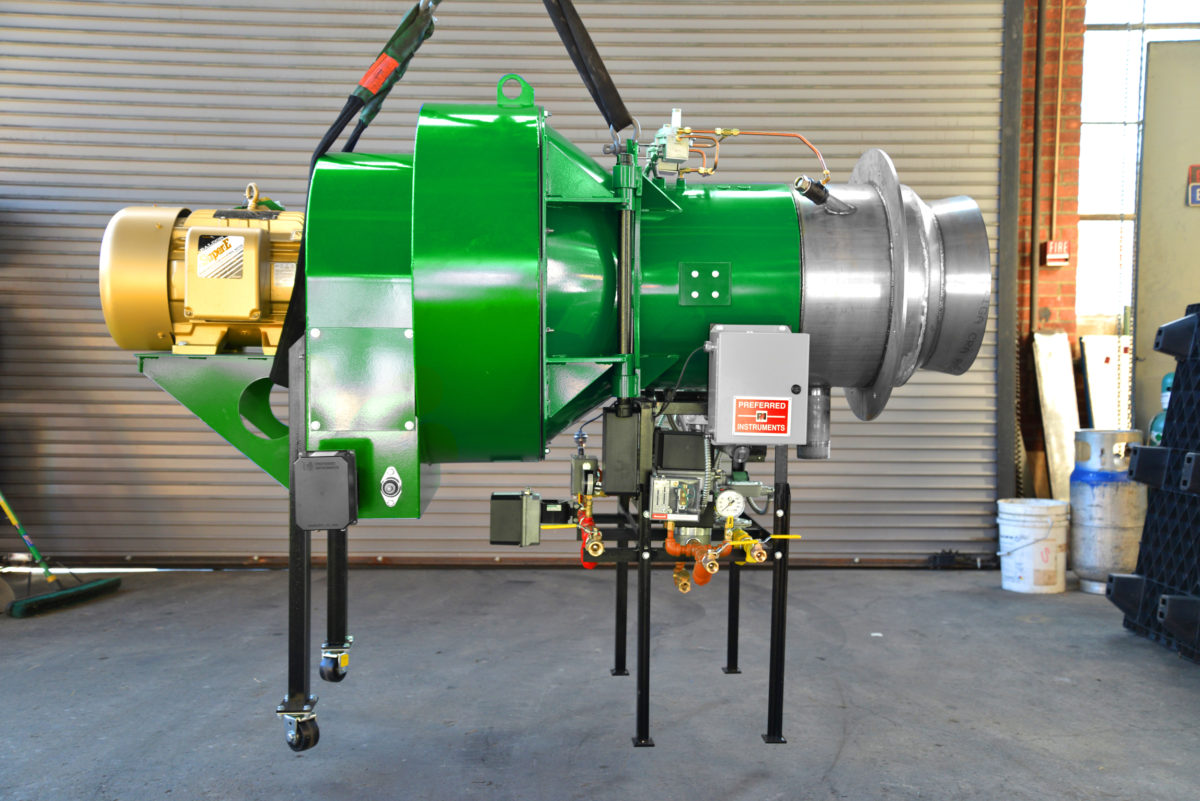Danbury’s Preferred Utilities Manufacturing sees bright future in liquid wood fuel
Most people are familiar with “liquid smoke,” the seasoning used to add a freshly grilled flavor to food. But what about liquid wood?
While just as oxymoronic as liquid smoke, liquid wood could prove to be a real game-changer when it comes to producing renewable, carbon-efficient fuel.
That is one of the bets being made by Preferred Utilities Manufacturing Corp., an engineering-based manufacturer of products for commercial, institutional, industrial and nuclear power facilities in Danbury. Its products include fuel oil handling systems and components, boiler instrumentation and controllers, high-quality burners and nuclear power plant outage reduction tools and component parts.
“We specialize in technology and advances within the fuel sector, not mass production,” said David Bohn, president and CEO of Preferred Utilities Manufacturing, “and as part of that we maintain an interest in alternative and renewable fuels.”

It was with that interest in mind that Ensyn Corp., a Canadian company that produces biocrude, a synthetic fuel, from forest and agricultural residues that can be used for heating and cooling applications, first approached the Danbury manufacturer three years ago. Ensyn wanted to see if Preferred Utilities could develop a liquid wood burner system that would be as reliable and inexpensive to use as a traditional fuel system.
As is the case with liquid smoke, liquid wood is produced by a thermochemical process called pyrolysis, by which wood is burned and, in the absence of oxygen, converted into a combustible liquid. The company maintains that the end product is 81 percent more carbon efficient than natural gas and 88 percent more carbon efficient than petroleum. Replanting trees used to produce liquid wood almost completely offsets carbon emissions from burning it, Bohn said.
Rather than modify an existing system, a new pump system was necessary since liquid wood must arrive in the boiler at much higher and more specific pressures than natural gas or petroleum, Bohn said. And with a pH value of 2.5, liquid wood is highly acidic, requiring that the system”™s pipes be made of high-grade stainless steel.
There was also the fact that liquid wood is 25 percent water. “When we learn how to burn water, we”™ll let you know,” Bohn joked.
Preferred Utilities Manufacturing was able to come up with a solution due to its mission and size, Bohn said. “We”™re not so big as to look at this and discard it as being too unprofitable or trendy,” he said, “but we”™re also not too small to hire the engineering expertise needed to accomplish something like this.”
He was referring to the company”™s Ranger Combustion System of burners, which the company says are the only known burners capable of effectively and reliably firing liquid wood.
Today there are several installations in Ohio, Vermont and Maine burning liquid wood fuel with Ranger burners. Bates College in Lewiston, Maine, in January spent about $1 million to convert one of its natural gas boilers to use liquid wood to heat its 1.1 million-square-foot campus with the Danbury company”™s system. As a result, the school has reduced carbon emissions by 83 percent.
Dan Wallace, the company”™s vice president of research and development, said the alternative fuel can be especially attractive to colleges like Bates that have adopted a sustainability pledge aimed to reducing carbon emissions. It also can attract utilities that use steam to heat city buildings. In March, said Wallace, Youngstown Thermal in Ohio spent about $1 million to convert a 100-year-old coal boiler into a liquid wood burner.
“They”™ve been hesitant to pull the trigger,” Wallace said of potential liquid-wood users. “But now that we have some that have made the change, we think that within a year everyone will start seeing the benefits.”
While liquid wood could be a game-changer for the company, Bohn said the Danbury firm also has high hopes for its recently introduced steam burner line, the Galaxy.
Bohn represents the third generation to run Preferred Utilities Manufacturing, after his grandfather Gerald, who founded the company in 1920, and his father Robert, the company”™s former president and CEO. Graduating from Hamilton College in upstate New York with a degree in English, Bohn said he told his family in no uncertain terms that he would not come to work for the business, preferring a career in writing and politics.
However, when his father became gravely ill as he was graduating, Bohn “felt a duty” to make at least a temporary stop at the family company. That was in 1987; he became company president in 1995. Four of Bohn”™s five children are now involved with the firm.
Today Preferred Utilities employs about 95 people nationwide, with 55 employees at its 50,000-square-foot facility at 31-35 South St. in Danbury.
The privately held business is “nominally a $20 million-a-year company,” Bohn said, noting that until 2016 it had been growing “at double-digit rates for eight to 10 years.” The collapse of oil and natural gas prices last year took its toll on the business, Bohn said, though he expressed confidence that the company will rebound heading into 2018.